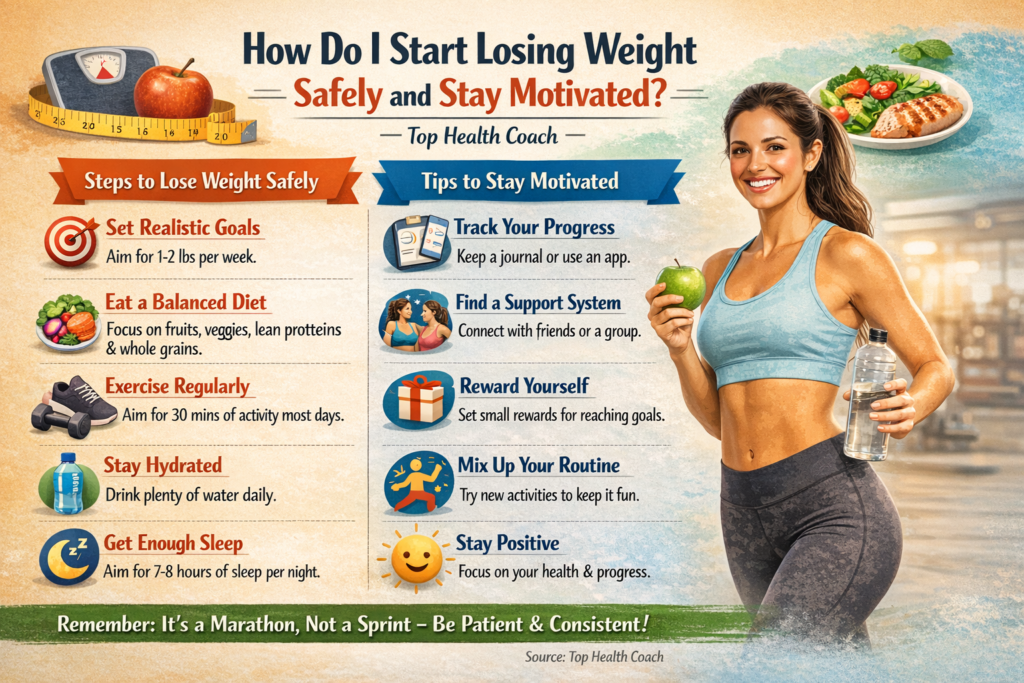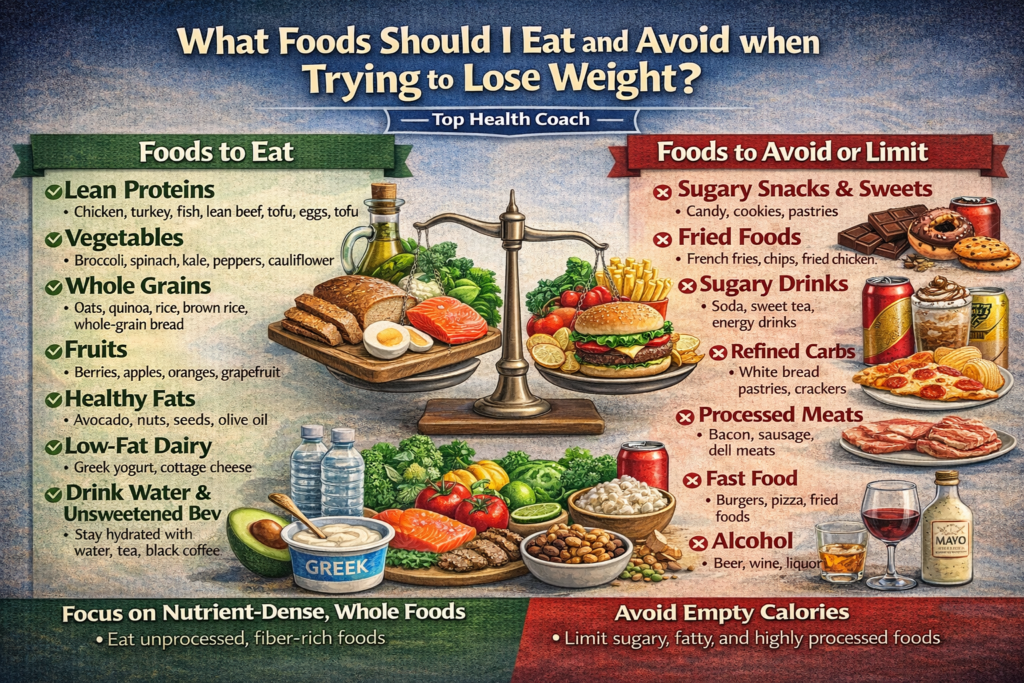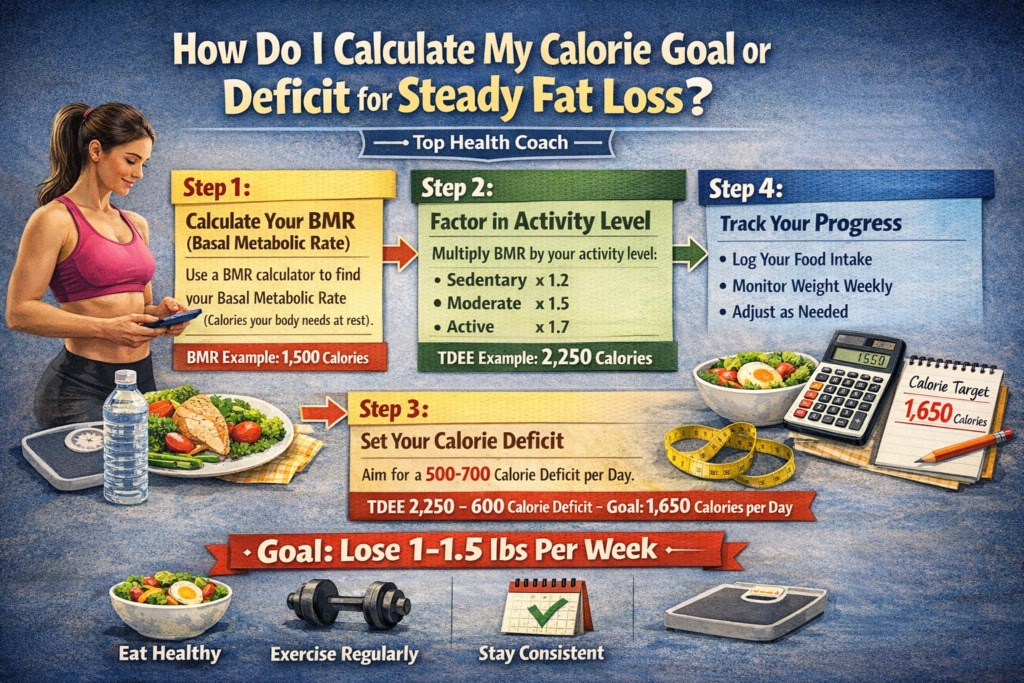Your Ultimate Guide: What are the best weight loss tips that actually work? 💪🔥
The journey to healthy weight loss is often filled with confusing advice, fad diets, and quick-fix promises that rarely deliver. In a world saturated with information, it can be overwhelming to figure out what actually works. The truth is, effective and sustainable weight loss isn’t about magic pills or extreme deprivation. It’s about making consistent, science-backed lifestyle changes that you can maintain for the long term. This comprehensive guide will cut through the noise, providing you with the best weight loss tips that actually work, helping you achieve your goals safely and effectively.

The Foundation: Healthy Weight Loss is a Lifestyle, Not a Diet
Before we dive into the specific tips, it’s crucial to shift your mindset. Thinking of weight loss as a temporary diet sets you up for failure. A diet implies a beginning and an end, and once you “finish” it, you often revert to old habits and regain the weight. The most successful approach is to view weight loss as a permanent change to your lifestyle. It’s about building new habits that support your long-term health, not just a temporary number on the scale.
The Science of Calories: The Golden Rule of Weight Loss
At its core, weight loss boils down to a simple principle: consuming fewer calories than your body burns. This is known as a calorie deficit. To lose one pound of fat, you need to create a deficit of approximately 3,500 calories. While this seems daunting, it can be achieved by a combination of reducing your calorie intake and increasing your physical activity.
Best Weight Loss Tips that Actually Work
- Prioritize Protein: Protein is the king of nutrients for weight loss. It boosts your metabolism, helps you feel full for longer, and reduces cravings. Studies show that a high-protein diet can significantly reduce appetite. Incorporate lean sources like chicken breast, fish, eggs, beans, and Greek yogurt into every meal.
- Fill Up on Fiber: Fiber-rich foods like fruits, vegetables, whole grains, and legumes are essential. They add bulk to your meals, promoting a feeling of fullness and helping to regulate your digestive system. This is a key strategy for managing calorie intake without feeling deprived.
- Drink Plenty of Water: Often overlooked, hydration is a powerful weight loss tool. Drinking water, especially before meals, can help you eat less. It also boosts your metabolism and helps your body burn fat more efficiently. Swap out sugary drinks for water to save hundreds of empty calories.
- Practice Mindful Eating: Pay attention to what you’re eating and savor each bite. This simple practice can help you recognize your body’s hunger and fullness cues, preventing you from overeating. Avoid distractions like your phone or TV during meals.
- Lift Weights: While cardio is great for burning calories, strength training is crucial for building muscle. Muscle tissue burns more calories at rest than fat tissue, meaning a more muscular body has a higher metabolism. Incorporating weight lifting into your routine is a game-changer for long-term weight loss and body composition.
- Get Enough Sleep: Lack of sleep can sabotage your weight loss efforts. It disrupts the hormones that regulate hunger and appetite (ghrelin and leptin), leading to increased cravings for high-calorie, high-carb foods. Aim for 7-9 hours of quality sleep per night.
- Manage Stress: Chronic stress elevates cortisol levels, a hormone that can increase appetite and lead to fat storage, particularly around the abdomen. Find healthy ways to manage stress, such as meditation, yoga, or spending time in nature.
- Cook at Home: Restaurant meals and takeout are often loaded with hidden calories, unhealthy fats, and excessive sodium. By cooking your own meals, you have complete control over the ingredients and portion sizes. This is a fundamental habit for sustainable healthy weight loss.
- Track Your Intake: Whether you use a journal or a smartphone app, tracking your food intake and calories for a week or two can be an eye-opening experience. It helps you become aware of your eating habits and identify areas where you can make improvements.
- Be Patient and Consistent: Weight loss is not a linear process. There will be good days and bad days. The key is consistency over perfection. Don’t get discouraged by a plateau or a slip-up. Just get back on track and remember that slow and steady wins the race.
The Role of Exercise in Healthy Weight Loss
Exercise is a powerful ally in your weight loss journey. It helps you burn calories, build muscle, and improve your overall health. A combination of cardiovascular exercise and strength training is the most effective approach.
- Cardio: Activities like running, cycling, swimming, and brisk walking are excellent for burning calories and improving heart health. Aim for at least 150 minutes of moderate-intensity cardio per week.
- Strength Training: As mentioned, lifting weights or using resistance bands is essential for building and preserving muscle mass. The more muscle you have, the higher your resting metabolic rate, which means you burn more calories even when you’re not working out.
FAQ: Your Most Common Weight Loss Questions Answered
1. How much weight can I lose in a week?
A safe and sustainable rate of healthy weight loss is about 1-2 pounds per week. Losing weight faster than this can be difficult to maintain and may lead to muscle loss instead of fat loss.
2. Is it better to do cardio or lift weights for weight loss?
Both are important. Cardio burns more calories during the workout itself, while strength training builds muscle, which boosts your metabolism long-term. The best approach is a combination of both.
3. Can I lose weight without dieting?
You can, but it’s very difficult. The saying “you can’t out-train a bad diet” is true. While exercise is crucial, calorie intake plays a bigger role in weight loss. Making smart food choices is fundamental.
4. What foods should I avoid for weight loss?
Limit or avoid highly processed foods, sugary drinks, fried foods, and refined carbohydrates like white bread and pastries. These foods are high in calories and low in nutrients, providing little to no satiety.
5. Is it okay to have a cheat meal?
Yes, a planned cheat meal can actually help you stick to your weight loss plan. It can prevent feelings of deprivation and satisfy cravings, making it easier to stay on track the rest of the week. Moderation is key.
6. Do I need to eat breakfast to lose weight?
The evidence on this is mixed. For some people, eating a protein-rich breakfast helps control appetite throughout the day. For others, skipping it (intermittent fasting) works well. The most important thing is to listen to your body and find what works for you.
7. How important is sleep for weight loss?
Extremely important. Lack of sleep throws your hunger hormones out of whack, increases cravings for junk food, and can make you feel too tired to work out. Prioritizing sleep is one of the best weight loss tips that actually work.
8. What is the best way to stay motivated?
Set realistic goals, track your progress (not just the scale), find an accountability partner, and celebrate small victories. Focus on non-scale victories like increased energy, clothes fitting better, and improved mood.
9. Are fat-free foods good for weight loss?
Not always. Many fat-free products compensate for the lack of fat by adding extra sugar, sodium, or artificial ingredients to improve the taste. It’s often better to choose the full-fat, natural version in a smaller portion.
10. Do I need to count calories to lose weight?
Calorie counting is a very effective tool for weight loss because it creates awareness and ensures you are in a deficit. However, it’s not the only way. You can also focus on portion control and filling your plate with nutrient-dense foods, which can naturally lead to a calorie deficit.
Conclusion: Healthy Weight Loss is Within Your Reach
The journey to a healthier you is not about quick fixes but about sustainable habits. By focusing on a calorie deficit, prioritizing protein and fiber, staying hydrated, and incorporating a mix of strength training and cardio, you are building a foundation for lifelong health. Remember to be patient with yourself, celebrate every small victory, and focus on the overall well-being you gain, not just the number on the scale. With these best weight loss tips that actually work, you have the knowledge and tools to achieve your goals and live a healthier, happier life.



